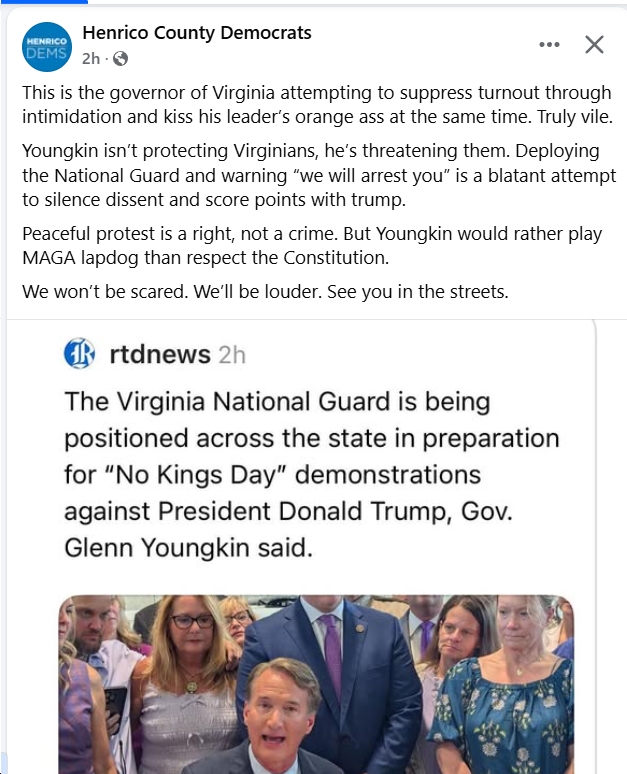This piece — written before Hillary Clinton’s excellent critique of Trump’s suitability to be in charge of American foreign policy — has run in newspapers in VA-06 (from Lynchburg to Harrisonburg and the northernmost part of the District). Whereas Hillary’s critique focused mainly on “temperament,” the different argument of this piece focuses on Trump’s ignorance.
The world is a complicated place (even more so than when I worked in American national security circles during the neo-cold war years of the 1980s). Making the right policy decisions is therefore a great challenge.
And the stakes are high – war and peace, life and death – not only for us Americans but, because of the power and leadership role of the United States, for everyone on earth.
Which is why we Americans should take note of the intense alarm our friends around the world have expressed at the fact that one of the two people who might be our next president is Donald Trump.
The United States has been the world’s greatest power for most of the past century. And though the U.S. has made a few costly mistakes, one of the reasons for our success is that, over the decades, capable people labored to establish a set of relationships with other nations and a generally workable framework of international organizations that have given the United States and the world a reasonable degree of peace, stability and prosperity.
That’s why we would rightly be highly skeptical of any presidential nominee — even if it were one deeply knowledgeable and brilliant in the realm of foreign affairs – who proposed major upheavals in those enduring frameworks of American policy. Not that the collective judgments of American statesmen and experts couldn’t conceivably be improved, but just that those judgments ought not lightly be overturned.
But if the presidential nominee proposing these major changes in America’s enduring positions, far from being an expert, is someone whose every utterance bespeaks a level of ignorance shocking in a potential president—well, then we can well understand the alarm of our friends around the world.
And we, the citizens of the United States, should share that alarm.
Two examples.
A mainstay of American foreign policy for more than half a century has been a determination to prevent the spread of nuclear weapons. The U.S. was a leader in the creation of the important Non-Proliferation Treaty, which has helped lessen the global dangers of nuclear war.
But back in March, Donald Trump suggested that it might be better for Japan and South Korea to develop their own nuclear arsenals to defend themselves against their nuclear neighbors, rather than continuing to depend – as they have now for generations – on the American nuclear umbrella. (And a few days later, Trump indicated more generally that he thought it would be good if more nations possessed nuclear weapons—thus rejecting the well-considered judgments of more than a half-century of American policy-makers.)
The Japanese and South Koreans were reported to be “shocked” and “bewildered” by Trump’s pronouncement.
Another even more long-standing bedrock of American foreign policy has been the North Atlantic Treaty Organization. In the years since the end of the cold war – the simmering confrontation with the Soviet Union that formed the context of which NATO was formed — NATO has continued to be a not-trivial part of the system for protecting American and Western interests and values, aiding in operations in such places as Bosnia and Afghanistan.
With his assertion that NATO is “obsolete,” Trump set off another set of alarms among nations that have long been among America’s best friends.
The responses from diplomats in Europe and Asia suggest that Trump’s proposed overhaul of American foreign policy would leave the U.S. not with more influence in the world, but less.
Similarly with many of his provocatively belligerent remarks directed at other nations with whom we have important relationships—such as Mexico, China, and the nations of the Islamic world. Why would they feel safe if the nation that is far and away the world’s most powerful dealt with others in the spirit that Trump is expressing? An America that saw its foreign relations so much in terms of “victories” would be likely to drive the rest of the world to band against the United States.
It has long been understood that nations should conduct themselves in the world in careful, measured, and predictable ways because there is so much at stake in keeping the peace (and no police to break up fights). That’s why diplomats speak as they do, minimizing friction, keeping things moving smoothly.
Mr. Trump, apparently thinking he knows better, offers the very opposite approach.
Though “Make America Great Again” sounds good, it would be a more credible slogan from someone who showed a greater understanding of what has made America a great world power to begin with.














